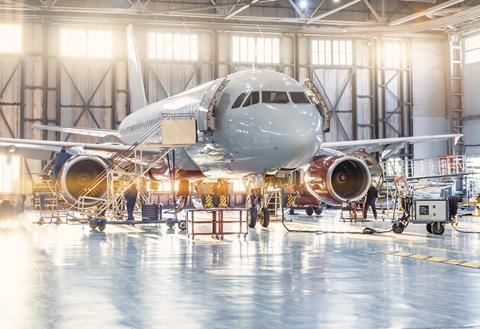European safety authorities are proposing revisions to the regulatory framework governing maintenance training organisations, in order to cut the risk of fraud.
The changes to Part-147 are contained in a newly-issued proposal from the European Union Aviation Safety Agency.
EASA says the proposal intends to address the impact on safety, as well as the credibility of the maintenance training system, arising from fraud cases and, in some cases, “cultural acceptance of cheating”.
It highlights the situation experienced by the Greek-based Hellenic Aviation Training Academy which was caught up in allegations of examination fraud, and had its approval to issue certificates of recognition revoked by the Hellenic civil aviation authority in 2014.
EASA pointed out, at the time, that fraudulently-obtained certificates had been used by individuals to gain maintenance licences.
“There is an immediate cause of safety concern that persons could have been issued licences and are exercising certification privileges or releasing aircraft after maintenance, without having sufficient basic knowledge to do so,” it stated.
EASA conducted, in late 2016, a survey on the maintenance licensing and training system which highlighted “shortcomings and areas of improvement”.

In its proposal it states that most reported fraud cases occur in examinations performed by maintenance training organisations outside of their approved locations – and particularly when examinations are held outside the territory for which their authority is competent.
“While it is very difficult to evaluate the real extent of the problem and to confirm the fraud cases themselves, the frequency of the feedback suggests that such occurrences are more than just isolated cases,” it adds.
Along with the safety risk the proposal aims to address the requirement for adequate knowledge – among student and organisation personnel – of the language in which the training is being delivered.
With the revision EASA intends to eliminate or reduce examination cheating or fraud, and enhance the consistency of Part-147 with other regulatory annexes.
It also seeks to ensure correct understanding by students, in terms of language used, of the subjects taught during training.
EASA says this will be achieved by introducing management system requirements which clearly identify lines of responsibility and duties within the training organisation, as well as qualification requirements for its personnel.
Compliance monitoring processes, training procedures, and examination practices – including the security of examination material – will be subject to amendment. Limitations and conditions will also be imposed on such privileges as conducting training activities in unapproved locations.
EASA states that the “vast majority” of maintenance training organisations will only experience a “minor” effect from the changes – and others none – because the proposed measures are correlated to the requirements of “well-functioning” entities.
It expects the proposals will generate a “major decrease” in fraudulent activities and, in the medium to long term, an increase in the competence of aircraft maintenance licence-holders.


























